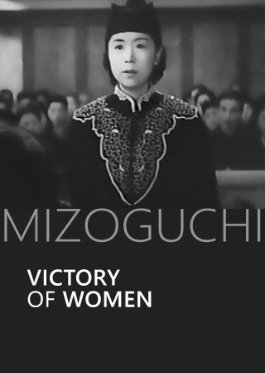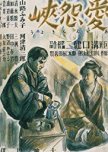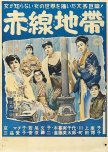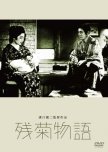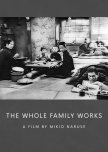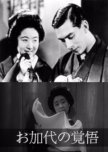
Both movies are show the courtroom and trial of women accused of killing a family member. In "Women's victory" Kinuyo Tanaka is a lawyer defending a woman who killed her baby in a moment of madness and despair. The prosecutor says that laws are laws and must be interpreted as such; Tanaka argues that laws have to be contextualized in the broader scope of society and she places blame for the murder on the failure of the Japanese government to look after the sick and injured (the accused's husband worked in a munitions factory during the war, was injured, and the family was driven into bankruptcy because he didn't get proper compensation).

Both are about trials in the courtroom to women accused of murdering their infants without considering the individual, social an other situations mothers are going through. Both narrate female suffering in an oppressive society
In "Women's Victory" Kinuyo Tanaka is a female lawyer. When Mitsuko Miura, an old school friend, is being tried for murder of her infant, she serves as her defending attorney. The prosecutor is her brother-in-law, Kappei Matsumoto, who put her fiancee in prison under the militarist government, and paid for her education. He is a cold and severe man, who espouses law on its own terms. Under the new swelling of democracy and liberalism, there are calls for his dismissal. If he can ride out the current moment, he hopes to be appointed a chief prosecutor. He asks, no, demands, that she throw the case. He claims that the law is an absolute in itself; yet he uses it and all means available to further his own interests. His arguments are straw man arguments, devoid of compassion or any humanity. Even though we do not hear the actual verdict, our sympathies are all with Miss Tanaka, and her victories outside the courtroom presage her inevitable victory within the well.
Despite the melodramatic underpinning of the case at hand, the real questions are the ones defining the direction of the post-war world in pitting the feudal values of “duty” and “womanliness” against a modernising liberality that prizes freedom and equality above hierarchy and obligation.
In "Women's Victory" Kinuyo Tanaka is a female lawyer. When Mitsuko Miura, an old school friend, is being tried for murder of her infant, she serves as her defending attorney. The prosecutor is her brother-in-law, Kappei Matsumoto, who put her fiancee in prison under the militarist government, and paid for her education. He is a cold and severe man, who espouses law on its own terms. Under the new swelling of democracy and liberalism, there are calls for his dismissal. If he can ride out the current moment, he hopes to be appointed a chief prosecutor. He asks, no, demands, that she throw the case. He claims that the law is an absolute in itself; yet he uses it and all means available to further his own interests. His arguments are straw man arguments, devoid of compassion or any humanity. Even though we do not hear the actual verdict, our sympathies are all with Miss Tanaka, and her victories outside the courtroom presage her inevitable victory within the well.
Despite the melodramatic underpinning of the case at hand, the real questions are the ones defining the direction of the post-war world in pitting the feudal values of “duty” and “womanliness” against a modernising liberality that prizes freedom and equality above hierarchy and obligation.

